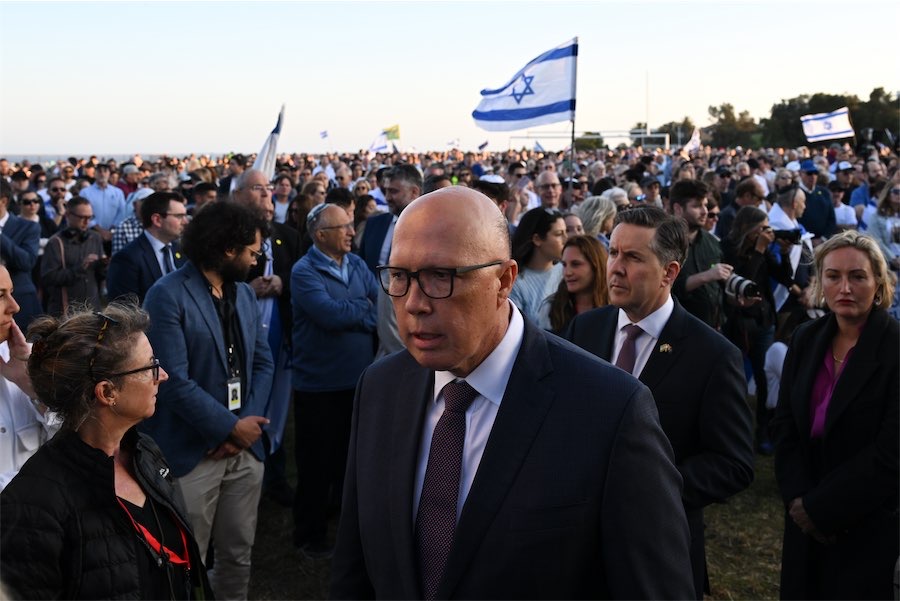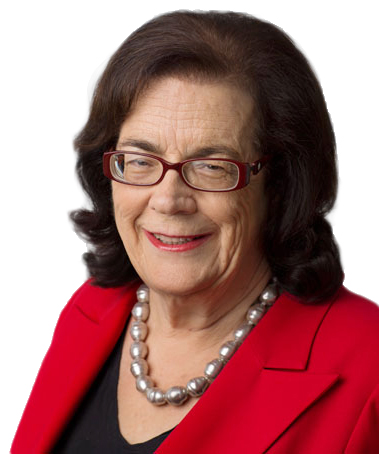
Opposition Leader Peter Dutton inflames debate around visas for Palestinians fleeing Gaza, writes political columnist MICHELLE GRATTAN.
Peter Dutton is 100 per cent signed up to the position of Israel in the Middle East conflict. Immigration minister Tony Burke has an electorate with the second largest Muslim community of any seat in the country.

Dutton and Burke this week have faced off in the fractious debate about Palestinians fleeing to Australia – an issue that risks putting another tear in our social cohesion fabric.
In keeping with our current politics, hyper-partisanship and an approaching election mean this argument is piling dangerous fuel on to an already incendiary local divisions the Middle East conflict has generated.
At the core is the balance this country should strike between national security and national compassion.
But there are complex questions involved, given the passions in sections of the community about the war. There are no absolute (let alone easy) answers to precisely where policy should land.
Dutton sees national security as his natural territory for political combat. His default is to cast issues in the starkest terms. He seldom does nuance, which leaves the impression everyone in Gaza is a potential terror risk.
Burke, just installed as immigration minister, has a brief to close down debates where possible. But he’s also acutely tuned into the voices of his seat, amplified by this week’s announcement a Muslim candidate will run against him as an independent.
ASIO chief Mike Burgess, appearing on the ABC at the weekend, said that from a security point of view, if someone from Gaza just gave “rhetorical support [to Hamas], and they don’t have an ideology or support for a violent extremism ideology, then that’s not a problem”. But if they had given material aid, “that can be a problem”. “Obviously we take each case on its merits in the context of the information we have before us.”
The position he spelled out might have surprised some people, but sources with knowledge of ASIO’s checking say this accords with the organisation’s guidelines.
But this is a security definition, rather than a policy about the entry of Gazans. Dutton didn’t want to get into an argument with Burgess, but he doesn’t accept that as the point where policy should land.
Opposition home affairs spokesman James Paterson sought to find a path between rejecting the Burgess position without rejecting Burgess. “In my view, supporting a terrorist organisation is a very clear breach of the Migration Act, and in particular, the character provisions of the Migration Act and you should not come to Australia if you do so,” Paterson said. “Now that’s not a criticism of Mike Burgess, he was simply describing the status quo under this government. We’ll have a different approach; we think that the acceptable number of Hamas supporters to bring into this country is zero.”
On Wednesday Dutton said: “I don’t think people should be coming in from that war zone at all at the moment. It is not prudent to do so, and I think it puts our national security at risk.” The words “at the moment” are relevant. Is Dutton advocating a short-term pause, or a long-term ban? It’s a fair bet that if there were a Liberal government, few Gazans would be welcome.
So far, on Burke’s figures, from October 7 (when the Hamas attack on Israel occurred) to August 12, 2922 visas from Gaza have been granted and 7111 rejected (though we don’t have a breakdown of grounds). About half those approved have come to Australia; the rest are still in Gaza or in third countries. Currently people are not able to leave Gaza.
Those who have arrived are on visitor visas; the government soon will have to announce its longer term plan for them.
Burke told parliament on Wednesday that everyone who had received a visa had been checked against ASIO’s watch list. This, however, can be a tick-and-flick unless it triggers a warning.
People coming from a war zone normally go through much more rigorous checks, with information obtained from other countries (such as the United States and Israel), biometric testing, and where possible in-person interviews. It can be a long process.
So what should Australia’s policy be towards the Gazan applicants? Where should that security/compassion interface be struck?
Most obviously, close relatives of Australian citizens or permanent residents should have a strong claim to come or, if they are here now, to stay permanently, subject (if considered necessary) to a recheck on security.
Beyond that, a compassionate Australia would set an intake, as it has in previous conflicts, such as from Syria and Afghanistan, with the proviso that comprehensive security checks might take some time.
This would be the right position on principle, although not necessarily a politically smooth policy. The Jewish and Palestinian communities would both likely have some objections from their opposing viewpoints.
For Burke, entry of the Gazans is an early test in his new portfolio. While the issue has the government on the back foot, it knows it would be struggling more if Andrew Giles were still the minister.
This week a Lakemba doctor Ziad Basyouny, who was born in Egypt and came here in 2004, announced he will run against Burke in Watson. He said he would campaign around the issues of the cost-of-living crisis, housing, education, health and Palestine.
“The last year has shown us that Labor won’t listen to its constituents on things like Palestine, housing or the cost of living, and if you stand against the wind you’ll be punished,” he said in an interview with The Guardian.
Basyouny told The Conversation that in his decision to stand, Gaza was “the nail in the coffin”. He said Burke should “push the government as hard as possible [on Gaza], but it doesn’t seem like he’s doing so.” In fact, the differences between Labor and the Liberals on Gaza were “pretty marginal”.
Burke is unlikely to be dislodged from his seat: for one thing it is on a 15 per cent margin and for another the Muslim community won’t be united. But the minister will have to spend more campaign time there than usual, and his immigration portfolio increases the local pressure on him.
In his weekend interview, days after the terrorism level was raised, Burgess appealed for the temperature of debate to be lowered. Instead, inside and outside parliament it just went up, yet again.![]()
Michelle Grattan, Professorial Fellow, University of Canberra. Republished from The Conversation.
Who can be trusted?
In a world of spin and confusion, there’s never been a more important time to support independent journalism in Canberra.
If you trust our work online and want to enforce the power of independent voices, I invite you to make a small contribution.
Every dollar of support is invested back into our journalism to help keep citynews.com.au strong and free.
Thank you,
Ian Meikle, editor




![For graphic designer Tracy Hall, street art is like any artwork, her canvas has been swapped out for fences and plywood, her medium changing from watercolours to spray paint.
A Canberra resident for 13 years, Tracy has been a street and mural artist for the past five.
Her first exploration into grand-scale painting was at the Point Hut toilets in Banks five years ago. “They had just finished doing up the playground area for all the little kids and the words [of graffiti] that were coming up weren’t family friendly,” she says.
“So I ended up drawing this design and I got approval for the artwork.”
Many of Tracy’s time-consuming artworks are free, with thousands of her own dollars put into paint.
@traceofcolourdesigns
To read all about Tracy's fabulous street art, visit our website at citynews.com.au or tap the link in our bio! 🎨🖌
#canberranews #citynews #localstories #canberrastories #Citynews #localnews #canberra #incrediblewomen #journalism #canberracitynews #storiesthatmatter #canberralocals #artist #streetart #streetartist #StreetArtMagic](https://scontent.cdninstagram.com/v/t39.30808-6/490887207_1225841146218103_6160376948971514278_n.jpg?stp=dst-jpg_e35_tt6&_nc_cat=106&ccb=1-7&_nc_sid=18de74&_nc_ohc=MUiEmedc4VAQ7kNvwHTUMX_&_nc_oc=Adk-5HjcsfQwB-n_l8zetmr0YqMaupGjrl2gNVCZdsmkxwn-oqjBg_V7pLtGggCE43s&_nc_zt=23&_nc_ht=scontent.cdninstagram.com&edm=ANo9K5cEAAAA&_nc_gid=3fjL16DA7WDFMmGuPmhczg&oh=00_AfG9D9FLSkek_ss8Me1cdnfGfXnkGWa8LRuaBCdFrEzzug&oe=680991D4)



Leave a Reply